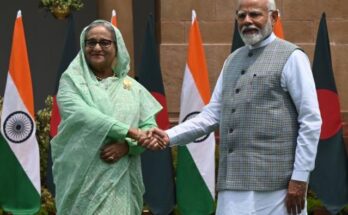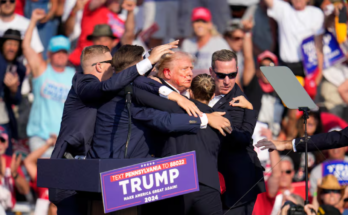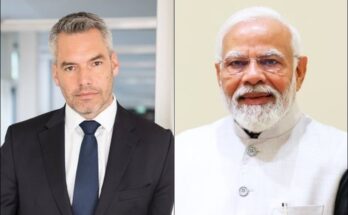In a world marked by shifting alliances and geopolitical turbulence, the meeting between Indian Prime Minister Narendra Modi and Russian President Vladimir Putin in Moscow stands out as a significant event. This blog post will explore the implications of this high-stakes meeting, its historical context, and what it means for the future of global politics. Whether you’re a political analyst, a world leader, or a geopolitical enthusiast, this comprehensive analysis will offer you valuable insights into Modi’s balancing act on the international stage.
The Significance of the Meeting
The meeting between Modi and Putin is not just another diplomatic engagement; it symbolizes a broader strategic maneuver. At a time when global politics are increasingly polarized, both leaders are attempting to strengthen their nations’ positions. The meeting aims to fortify the India-Russia relationship, addressing mutual interests while navigating the complexities of the current geopolitical climate.
Historical Context
The India-Russia Relationship
The relationship between India and Russia dates back to the Cold War era. During this period, India leaned toward the Soviet Union, benefiting from military and economic support. This historic alignment laid the groundwork for a robust partnership that has endured various political changes over the decades.
Key Moments in History
One cannot overlook key moments like the Indo-Soviet Treaty of Peace, Friendship, and Cooperation signed in 1971. This treaty was instrumental in shaping the regional dynamics of South Asia. Additionally, the dissolution of the USSR in 1991 marked a transitional phase, yet both nations continued to maintain strong ties.
Dynamics Over the Years
The dynamics of this relationship have evolved but remained fundamentally strong. Over the years, India and Russia have found common ground on numerous issues, including defense, energy, and space exploration. This long-standing partnership serves as a foundation for the current dialogue between Modi and Putin.
Current Political Landscape
Influence of Global Politics
The current global political climate has a profound influence on the Modi-Putin meeting. With rising tensions between major powers like the United States and China, both India and Russia find themselves navigating a complex web of alliances and conflicts.
India’s Position
India’s geopolitical strategy is multi-faceted. While maintaining close ties with Western nations, India has also preserved its relationship with Russia. This dual approach allows India to leverage its position on the global stage, balancing its interests between competing superpowers.
Russia’s Perspective
From Russia’s perspective, maintaining a strong relationship with India is crucial for counterbalancing Western influence. With ongoing sanctions and heightened scrutiny from the West, Russia views its partnership with India as a strategic asset.
Economic and Military Ties
Defense Collaboration
One of the cornerstones of the India-Russia relationship is their defense collaboration. Over the years, India has procured numerous military assets from Russia, including advanced fighter jets and missile systems. This military partnership enhances India’s defense capabilities, making it a formidable player in the region.
Economic Agreements
Beyond defense, economic collaborations between India and Russia are equally significant. Trade agreements, joint ventures, and investments in sectors like energy and technology have fortified their economic ties. Recent developments indicate growing interest in expanding these partnerships further.
Impact on Both Nations
The economic and military partnerships not only benefit India and Russia but also contribute to regional stability. These collaborations create a balanced power dynamic, offering both nations a strategic advantage in their respective spheres of influence.
Geopolitical Implications
Role of Major Powers
The Modi-Putin meeting has far-reaching geopolitical implications, especially concerning other major powers like the United States and China. By strengthening their bilateral relationship, India and Russia send a message of strategic autonomy, resisting pressures from Western and Eastern blocs.
Regional Stability
In a volatile region like South Asia, the strengthened India-Russia relationship serves as a stabilizing factor. This partnership can potentially mitigate conflicts and promote peace, enhancing regional security.
Global Repercussions
On a global scale, the meeting between Modi and Putin could redefine alliances and reshape geopolitical strategies. Other nations will be closely watching this development, assessing its impact on their own foreign policies.
The Balancing Act
Modi’s Strategic Approach
Prime Minister Modi’s approach to international relations is characterized by a delicate balancing act. By engaging with Russia, Modi aims to diversify India’s strategic partnerships, preventing over-reliance on any single superpower.
Navigating Complex Relationships
The ability to maintain strong relationships with both Western and Eastern powers is a testament to Modi’s diplomatic skill. This balancing act is crucial for India’s long-term strategic goals, ensuring flexibility and resilience in its foreign policy.
Benefits of the Balanced Strategy
A balanced strategy not only enhances India’s global standing but also provides economic and security benefits. By diversifying its alliances, India can better protect its interests and respond to emerging challenges.
Future Projections
Evolving Dynamics
The future of the India-Russia relationship will likely be shaped by evolving geopolitical dynamics. Both nations will need to adapt to changing circumstances, leveraging their partnership to address new challenges and opportunities.
Potential Impact on Global Affairs
The strengthened India-Russia relationship could have a ripple effect on global affairs. Other nations may seek to realign their strategies, leading to a potential shift in the global balance of power.
Speculations and Predictions
While it’s challenging to predict the exact outcomes, one can speculate that the Modi-Putin meeting will pave the way for deeper collaborations in various sectors. This partnership could serve as a model for other nations seeking to balance their strategic interests in a complex global landscape.
Conclusion
The meeting between Narendra Modi and Vladimir Putin in Moscow is more than a diplomatic engagement; it’s a strategic maneuver with far-reaching implications. By exploring the historical context, current political landscape, economic and military ties, and geopolitical repercussions, we’ve gained valuable insights into this significant event. For political analysts, world leaders, and geopolitical enthusiasts, understanding this meeting is crucial for navigating the complexities of global politics.
Are you interested in staying updated on similar geopolitical developments? Subscribe to our newsletter for in-depth analysis and expert opinions.



